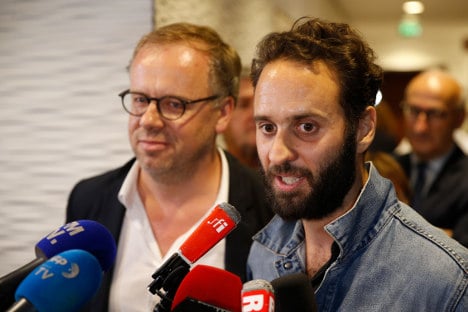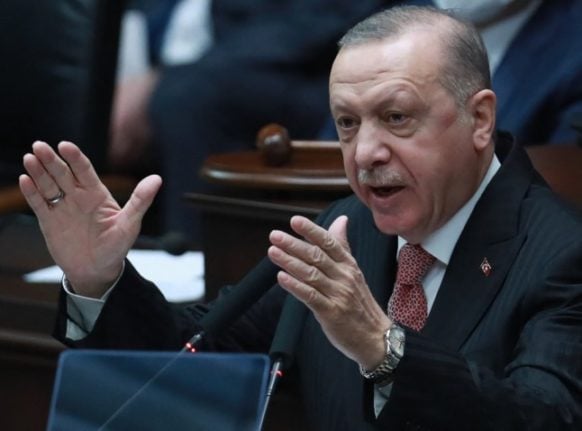Depardon, who was detained near the Syrian border while on assignment for National Geographic magazine, said he was “happy to be in Paris, to be in France” as he was met by government officials at Paris' Charles de Gaulle airport. “I'm fine,” the 37-year-old told reporters, smiling but visibly tired.
Depardon said he was accused of terrorist propaganda and supporting terrorist groups, namely the Kurdish separatist PKK (Kurdistan Workers' Party), over some photographs he had taken in recent years.
“I think the idea was to send a strong message to foreign and Turkish journalists who are intending to cover news in southeast Turkey,” he said.
The southeast has been battered by renewed fighting between Kurdish rebels and Turkish security forces since a fragile truce collapsed in 2015.
Depardon said he had very little contact with other detainees and did not know long he was going to be held.
“I knew that legally I could be detained up to a year,” he said.
The photographer was deported a day after receiving a visit from his mother for the first time at the detention centre in Gaziantep.
President Emmanuel Macron had announced Depardon's arrival on Twitter after asking his Turkish counterpart Recep Tayyip Erdogan last weekend to ensure the journalist's return to France “as soon as possible.”
Macron had welcomed his release, saying in a statement: “France is committed to freedom of the press and the protection of journalists everywhere.”
Depardon was detained on May 8th while on assignment in Hasankeyf in Turkey's southeastern Batman province.
He went on hunger strike two weeks after his detention, stopping almost a week later when he learned that a consular visit would be allowed.
Depardon was accused of working without a press card, which was in the process of being renewed.
He was also detained over “propaganda for a terror group” – a reference to outlawed Kurdish militants – which could lead to a judicial investigation, according to Turkish authorities.
“It was an absolutely unjustified detention,” Reporters Without Borders (RSF) secretary general Christophe Deloire told AFP.
Journalists' advocate groups say working conditions have deteriorated in Turkey in recent years, especially since a coup attempt last July.
Turkey ranks 155th out of 180 in the 2017 press freedom index of RSF.



 Please whitelist us to continue reading.
Please whitelist us to continue reading.